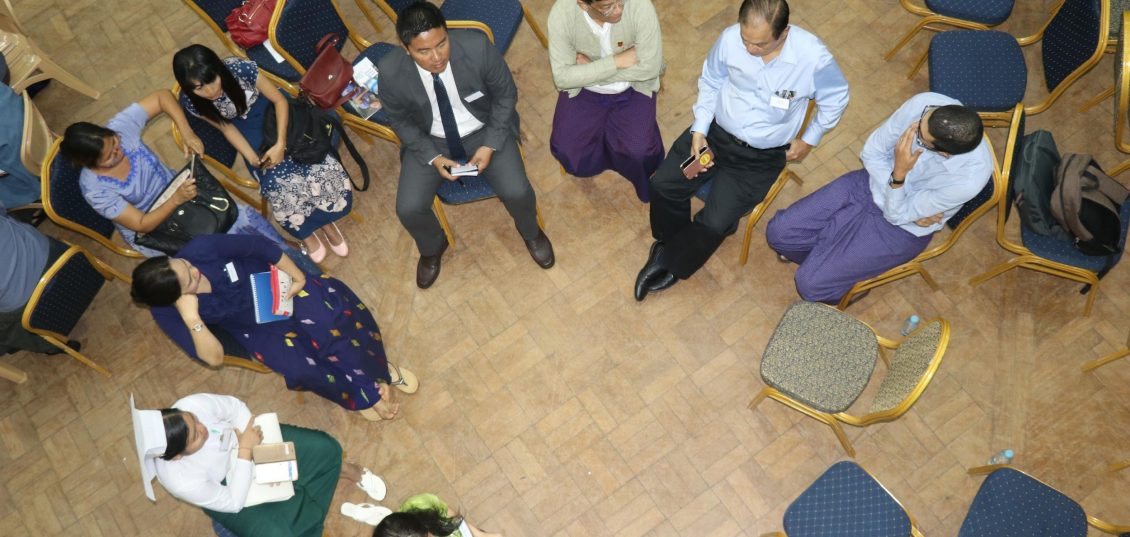Summary Report
Tuesday 9th January 2018, University of Medicine 1, Yangon
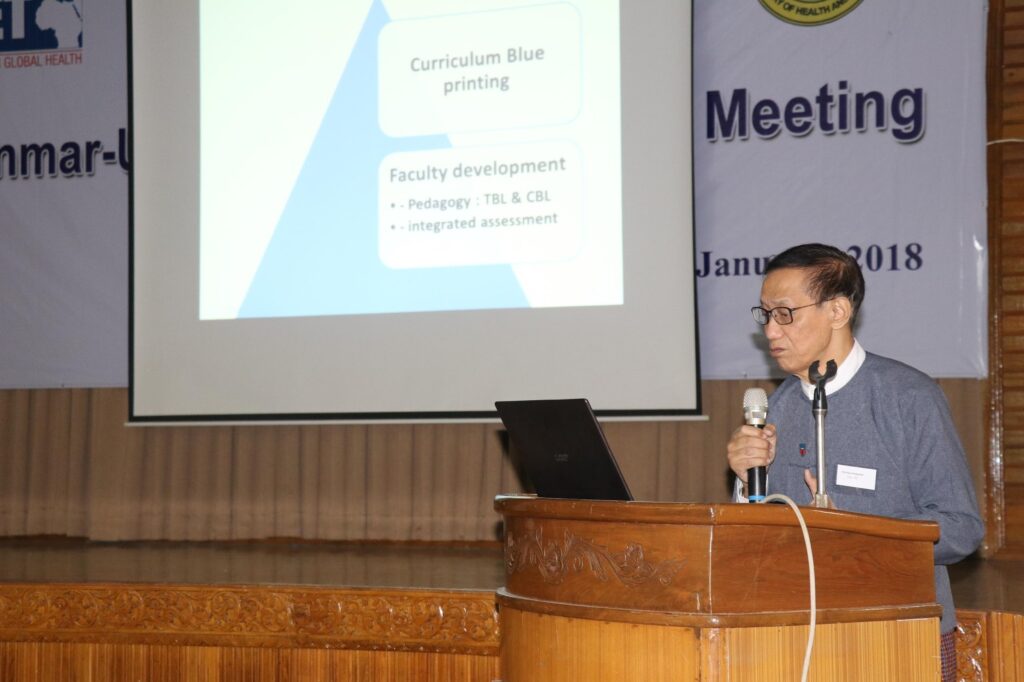
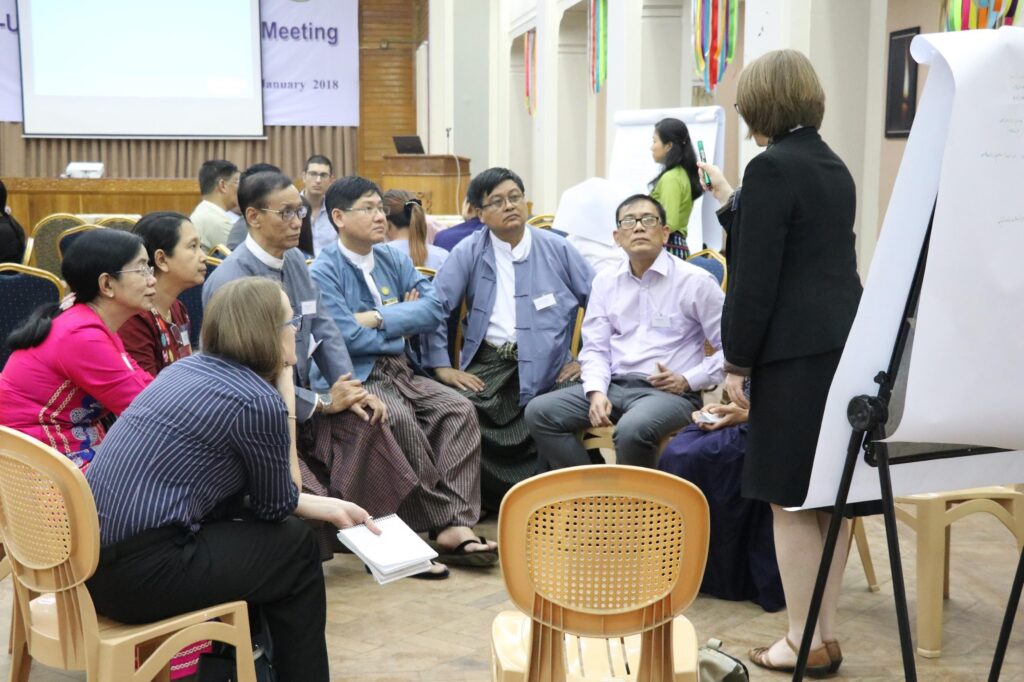
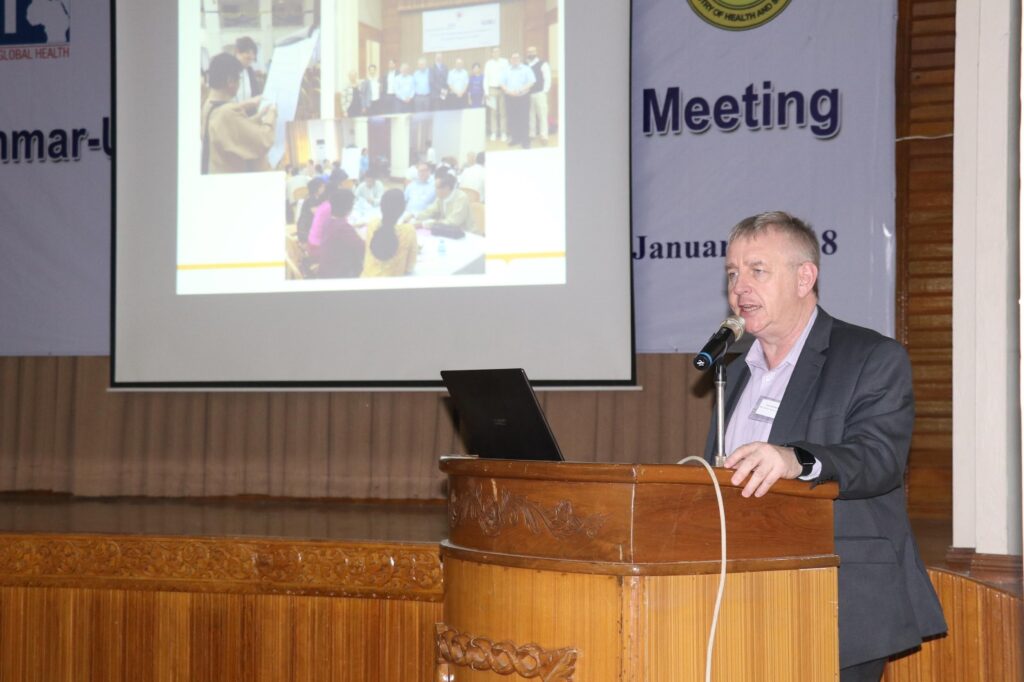
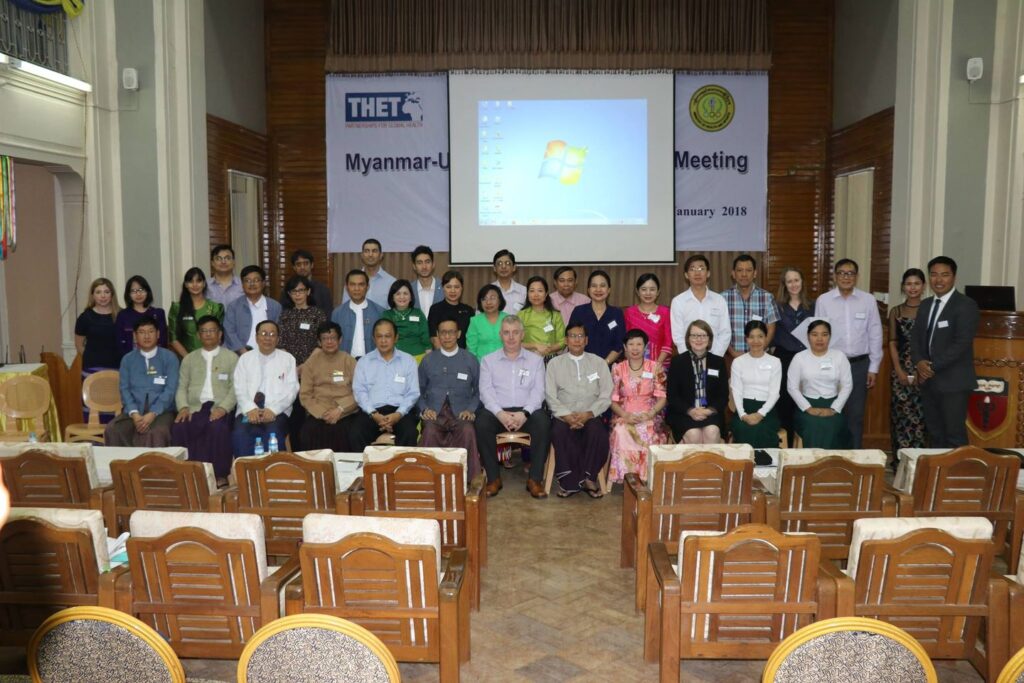
This meeting brought together 53 participants from universities and health facilities across Myanmar, the Ministry of Health and Sports, professional associations and councils, DFID, and diaspora from the UK. The opening speech was given by Professor Ged Byrne, Director of Global Engagement, Health Education England and followed by afternoon session with Diaspora engagement in Myanmar Healthcare Workshop.
Some notes from the Professor Ged Byrne’s speech;
Why an Alliance?
It is a proven approach to coordination and collaboration for increased impact: It allows coordination and alignment to strategic priorities, facilitation of collaboration within a network, supports efficient partnership working, and supports development of effective partnership working.
Sharing expertise and working in partnership: can support curriculum development through Royal College collaboration, can fund placements and fellowships in Myanmar, address workforce gaps through educational placements and volunteering programmes, create institutional health partnerships for improvement, international collaboration on public health, train the trainer in specialty areas, and offer exchange programmes to share models and learning.
Diaspora engagement in Myanmar Healthcare Workshop
There are around 1,000 Burmese diaspora globally, and more than 100 who are health professionals in the UK. This workshop looked to discuss the need and role for diaspora specialists to contribute to improving health care in Myanmar, how often and what level their input may be required, how to overcome any challenges in engaging diaspora, and what practical support the MoHS could provide to support their contributions.
Across the groups it was agreed that contributions from every specialty were required to strengthen the health system in Myanmar, as long as the contributions were those that are genuinely needed. Areas for contributions identified were:
- Delivery of training (particularly hands on training – it is skills development rather than knowledge that is required)
- Research
- Academic work
- Service delivery
- Technical skills transfer
- Remote support (e.g. sharing advice and technical expertise online, although there are some confidentiality considerations here)
- Elearning (tailored to needs, e.g. geriatrics) and free online materials that could be shared
- Networking within specialties
- Fundraising for specific needs/ causes in Myanmar
- Ambassadorship in the UK for Myanmar, and advocacy for particular health issues
The level of engagement required depends on the type of project. They want a coordinated input and for people to be committed to visiting regularly (ideally twice per year), rather than just once. In the past, some input has been more ad hoc. Terms of reference should also be drafted for the visits. There is a role for the Alliance to help coordinate and arrange visits within specialty areas. Local health professionals value a liaison person from the diaspora community. The Alliance can help to source such persons.
Contributions from diaspora need to be monitored, evaluated and captured through reports. Again the Alliance could help in this regard.
